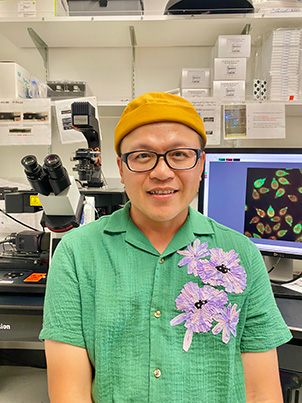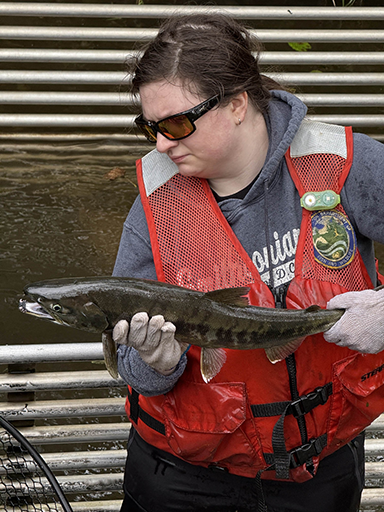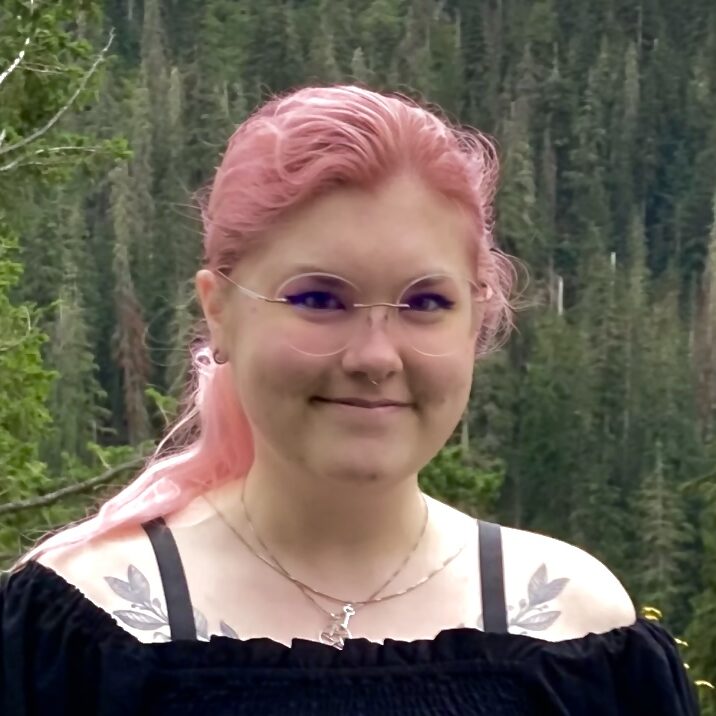Expanding horizons: how research and field opportunities inspire UW Bothell biology students

At the University of Washington Bothell, students in the School of STEM experience education beyond the classroom. With smaller class sizes and a focus on one-on-one engagement with faculty, students have the opportunity to shape their academic journeys in a way that fosters personal and professional growth. For biology students, these opportunities can be transformative, as they gain exposure to real-world research, interdisciplinary collaboration and career paths that extend beyond traditional expectations.
A personalized approach to education
When Dr. Han-Wei Shih joined the School of STEM’s Division of Biological Sciences at UW Bothell as an assistant professor in autumn 2024, he brought a student-focused approach to his Molecular Biology course. A pre-course survey revealed to him that his students, mostly seniors planning to graduate in a few months, were unaware of the diverse career paths available to them. Instead of merely delivering lectures, he engaged students in discussions about what they already knew and what they hoped to learn. This adaptive teaching method ensured that students were not just checking boxes for graduation but were actively preparing for their future careers.

“He wanted to go above and beyond and help us prepare not just for our academic lives, but also for our lives onward from that,” Biology Senior Adelle Nolan said. “Whether it’s our career or continuing in academia, whatever it was.”
Eye-opening field experiences
To expand his students’ understanding of career possibilities in biology, Shih arranged field trips to Just – Biologics and the Allen Institute at the end of autumn quarter. The field trips gave students an inside look at the facilities through guided tours and interactive Q&A panels with professionals working in cross-disciplinary roles. Shih hoped that these tours would provide his students with awareness of the research community in the region and the career opportunities in the fields. Shih also wanted his students to hear from speakers with diverse STEM backgrounds, learning about their personal journeys through academia and industry and how they arrived at their current roles.
“I strongly believe that academia and industry share a close and mutually beneficial relationship,” Shih said. “This connection is essential not only for advancing academic research but also for fostering industry growth.”

At Just – Biologics, students explored the intersection of biology and technology, where professionals worked in multidisciplinary teams to develop innovative solutions. Speaker panels highlighted unique backgrounds and specialties and how they come together collaboratively in biotech research. The Allen Institute further reinforced this concept, with researchers from a wide range of backgrounds collaborating on cutting-edge projects across disciplines.
“It was very interesting to see the types of people that go into this facility and what their roles were, what they did, and how they all interconnected,” said Hannah Heilman, a senior majoring in Biology.
For Heilman, who’s been involved in genetics research at UW Bothell, the experience was eye-opening to the opportunities available in biology in Seattle and the value that vast research experience brings to the field.
“Going on the field trip to the Allen Institute and Just – Biologics tied into my research because it made me appreciate the science more,” Heilman said. “It just inspired me to keep going, working at what I love, and to get as much research experience as possible.”
A well-rounded approach to science and learning

For many students, these experiences were more than just academic exercises — they were pivotal moments that shifted their outlook on their futures. Nolan, initially uncertain about job opportunities within their niche specialty of human sex diversity, found reassurance in seeing recent graduates working in interdisciplinary roles.
“I came into this field trip being worried about my future and feeling like I wanted to cling on to my bachelor’s degree — find a way to stay in college forever,” they shared. “But then when I came out of that first field trip, I felt confident. I felt inspired.”
The field trips reiterated to students that a successful career in biology isn’t confined to a single specialty. The educational journey in the School of STEM is about more than just meeting graduation requirements — it’s about helping students discover their passions, build meaningful connections and step into their future with excitement and purpose.
“The experience showed us how science thrives on collaboration and innovation,” Shih said. “As we returned to our studies, we carried with us a deeper appreciation for the endless possibilities in scientific discovery.”
